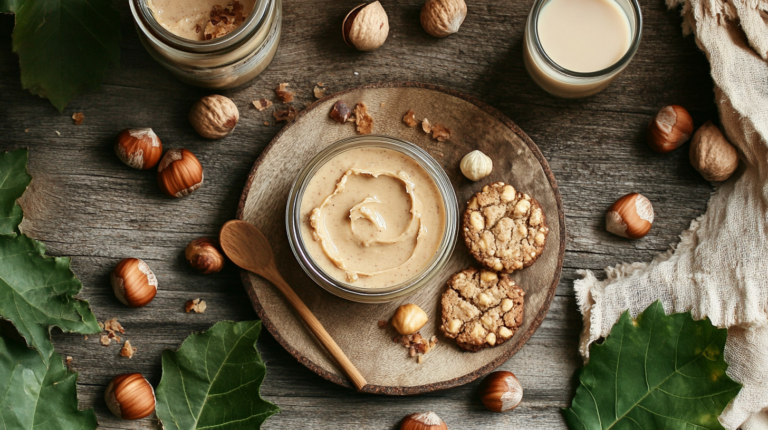Exploring Hazelnut Uses: From Culinary Delights to Non-Culinary Uses
Introduction
Hazelnuts, known scientifically as Corylus avellana, are small, round nuts with a rich, buttery flavor and a wide array of uses. Celebrated for their nutritional benefits, hazelnuts are a staple in various culinary traditions and industries. This article explores the general uses of hazelnuts, highlighting their culinary versatility, health benefits, and applications beyond the kitchen.
Nutritional Profile and Health Benefits
Hazelnuts are nutrient-dense, offering numerous health benefits. They are rich in healthy fats, particularly monounsaturated fats, which are beneficial for heart health. Hazelnuts also provide a significant amount of protein, dietary fiber, vitamins, and minerals. Key nutrients found in hazelnuts include:
- Vitamin E: An antioxidant that helps protect cells from damage and supports immune function.
- Magnesium: Important for muscle function, nerve transmission, and energy production.
- Copper and Manganese: Essential for iron metabolism and bone health.
- B Vitamins: Including folate and B6, which are crucial for energy metabolism and brain health.
Regular consumption of hazelnuts can contribute to improved cardiovascular health, better digestive health due to their fiber content, and overall nutritional balance.
Culinary Uses of Hazelnuts
Whole Hazelnuts
Whole hazelnuts can be consumed raw, roasted, or toasted. They make a nutritious and satisfying snack on their own or can be added to a variety of dishes for added crunch and flavor. Roasting hazelnuts intensifies their flavor, making them a popular addition to both sweet and savory recipes.
Ground Hazelnuts
Ground hazelnuts can be used as a gluten-free alternative to traditional flours. Hazelnut meal or flour adds a rich, nutty flavor to baked goods, such as cakes, cookies, and breads. It also works well as a coating for meats or vegetables, offering a flavorful and crunchy texture.
Hazelnut Oil
Hazelnut oil is a gourmet ingredient known for its delicate, nutty flavor. It is commonly used in salad dressings, marinades, and as a finishing oil for dishes. Due to its low smoke point, hazelnut oil is best used in raw applications or added to dishes after cooking to preserve its flavor and nutritional properties.
Hazelnut Butter
Hazelnut butter is a creamy spread made from ground hazelnuts. It serves as a delicious alternative to peanut butter and can be used in a variety of ways, including spreads for toast, fillings for sandwiches, or as an ingredient in baking and cooking. Hazelnut butter pairs exceptionally well with chocolate, making it a popular choice for desserts.
Hazelnut Milk
Hazelnut milk is a dairy-free alternative to cow’s milk, made by blending hazelnuts with water and straining the mixture. It has a slightly sweet, nutty flavor and can be used in coffee, smoothies, cereal, and baking. Hazelnut milk is an excellent option for those who are lactose intolerant or following a plant-based diet.
Confectionery and Desserts
Hazelnuts are a beloved ingredient in the confectionery industry. They are often used in chocolate products, pralines, and truffles. One of the most famous hazelnut confections is Nutella, a sweet spread made from hazelnuts and chocolate. Hazelnuts also feature prominently in European desserts such as Italian gianduja, a creamy chocolate-hazelnut spread, and French dacquoise, a meringue cake layered with hazelnut cream.
Non-Culinary Uses of Hazelnuts
Cosmetics and Skincare
Hazelnut oil is valued in the cosmetics and skincare industry for its moisturizing and antioxidant properties. It is a common ingredient in creams, lotions, and serums designed to hydrate the skin and protect against environmental damage. The oil’s light texture and easy absorption make it suitable for all skin types, including oily and acne-prone skin.
Medicinal Uses
Hazelnuts have been used in traditional medicine for their potential health benefits. The high content of antioxidants and healthy fats in hazelnuts can help reduce inflammation and support heart health. Additionally, hazelnut oil is sometimes used in aromatherapy and massage for its soothing properties.
Agricultural and Environmental Benefits
Hazelnut trees offer several environmental benefits. They are often used in agroforestry systems to prevent soil erosion, improve soil fertility, and enhance biodiversity. The deep root systems of hazelnut trees help stabilize the soil, while their leaves provide organic matter that enriches the soil. Hazelnut orchards also serve as habitat for various wildlife species, contributing to ecological sustainability.
Economic Importance and Market Trends
Global Production
Turkey is the world’s leading producer of hazelnuts, followed by Italy, the United States, and Spain. The Black Sea region of Turkey is particularly renowned for its high-quality hazelnuts. The global demand for hazelnuts has been steadily increasing, driven by their nutritional benefits and versatility in food products.
Market Dynamics
The hazelnut market is influenced by factors such as climate conditions, production costs, and global demand. Climate change poses a significant challenge to hazelnut production, affecting yields and quality. To address these challenges, growers are adopting sustainable farming practices and investing in research to develop more resilient hazelnut varieties.
Emerging Markets
Emerging markets in Asia and the Middle East are showing increasing interest in hazelnuts due to growing consumer awareness of health and wellness. The demand for plant-based and dairy-free products is also driving the growth of hazelnut-based products in these regions. Innovative uses of hazelnuts in snacks, beverages, and gourmet foods are expanding market opportunities.
Conclusion
Hazelnuts are a versatile and nutritious nut with a wide range of uses in culinary and non-culinary applications. Their rich flavor and health benefits make them a popular ingredient in various dishes, from savory meals to decadent desserts. Beyond the kitchen, hazelnuts contribute to skincare, traditional medicine, and environmental sustainability. As global demand for hazelnuts continues to rise, the industry is poised for growth, driven by innovation and a focus on health and wellness.
Whether you are a culinary enthusiast, a health-conscious consumer, or an environmental advocate, hazelnuts offer something for everyone. By incorporating hazelnuts into your diet and lifestyle, you can enjoy their delicious flavor, nutritional benefits, and positive impact on the environment.






